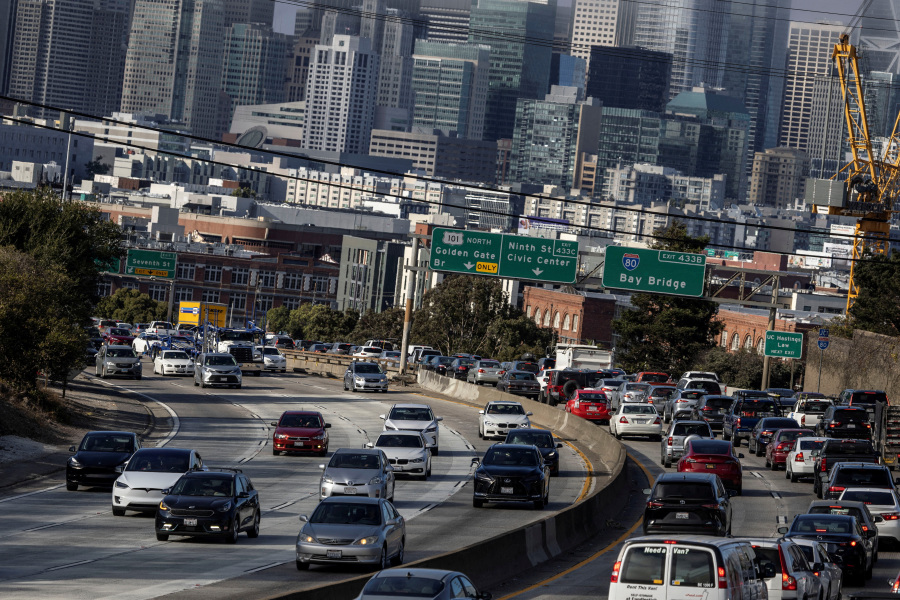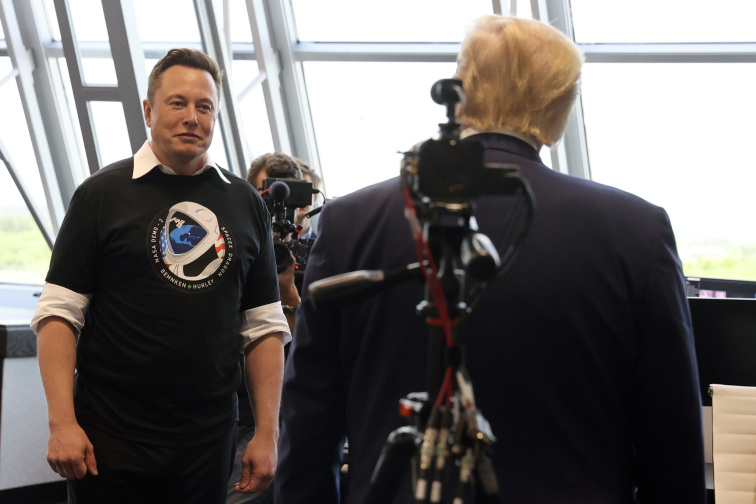A view of cars on the road during rush hour traffic jam in San Francisco, California, U.S. August 24, 2022. (REUTERS/Carlos Barria)
(Reuters) -Republican presidential candidate Donald Trump said on Thursday that if he is elected in November, no state will be able to ban gasoline-powered cars or trucks, as he seeks to make the future of the auto industry a key campaign issue.
Trump is looking to win votes in Michigan, a key swing state in the 2024 presidential election that is home to the Detroit Three automakers. He told Reuters in August he is considering ending the electric vehicle tax credit.
"When I'm president, no state in America will be permitted to ban gas powered cars or trucks, and I guarantee it - no way," Trump said at a rally in Saginaw, Michigan. "You're going to make them right here."
Vice President Kamala Harris' campaign did not immediately respond to a request for comment.
The state of California in May 2023 asked the Environmental Protection Agency for a waiver under the Clean Air Act to require all new vehicles sold in the state by 2035 to be electric or plug-in hybrids.
California in August 2022 had approved its landmark plan to end the sale of gasoline-only vehicles in the state by 2035.
The state wants to set yearly rising zero-emission vehicle requirements starting in 2026 that have also been adopted by 11 other states.
President Joe Biden's administration has repeatedly refused to endorse setting a date to phase out the sale of gasoline-only vehicles but has awarded billions of dollars in new tax credits and grants to speed the transition to EVs.
Biden wants 50% of new vehicles to be EVs by 2030 and says they are essential for competing with China.
In March, the EPA finalized federal rules to cut vehicles' emissions by 49% by 2032 over 2026 levels. The EPA forecast between 35% and 56% of new vehicles sold between 2030 and 2032 would be electric to meet stringent emissions limits.
Automakers have questioned California's 2035 plan, arguing EV requirements might be feasible "at least in the early years for California" but for other states with significantly lower EV sales the outlook "is far less certain."
California's EV rules would cut smog-causing pollution from light-duty vehicles by 25% by 2037. They mandate 35% of new cars sold be plug-in or zero-emission by 2026, rising to 68% by 2030 and 100% by 2035.
California estimated its rules would cost $210 billion but have total benefits of $301 billion through 2040. They allow automakers to sell up to 20% plug-ins in 2035.
(Reporting by Costas Pitas and David Shepardson; Editing by Jamie Freed)









News magazine bootstrap themes!
I like this themes, fast loading and look profesional
Thank you Carlos!
You're welcome!
Please support me with give positive rating!
Yes Sure!